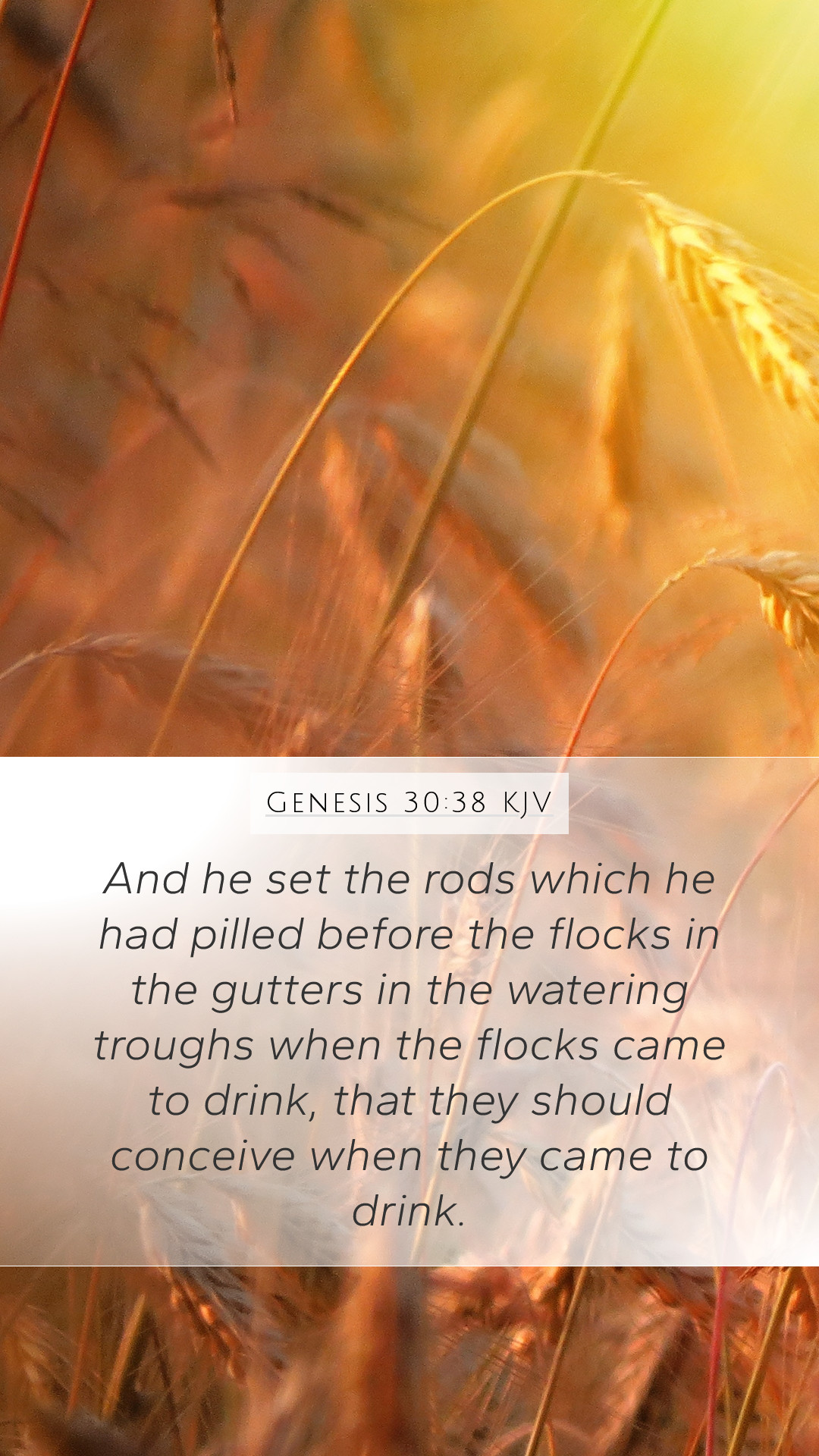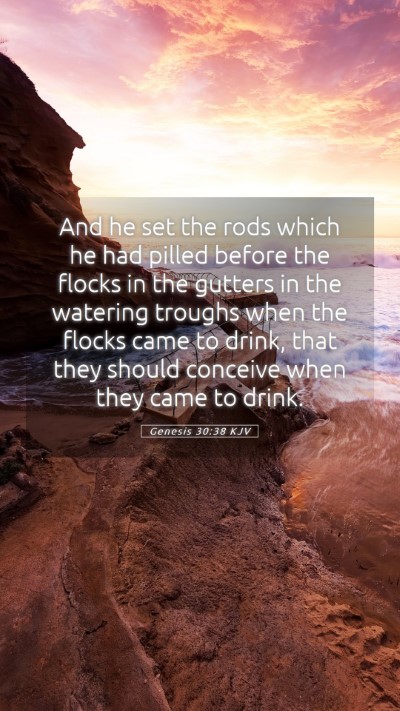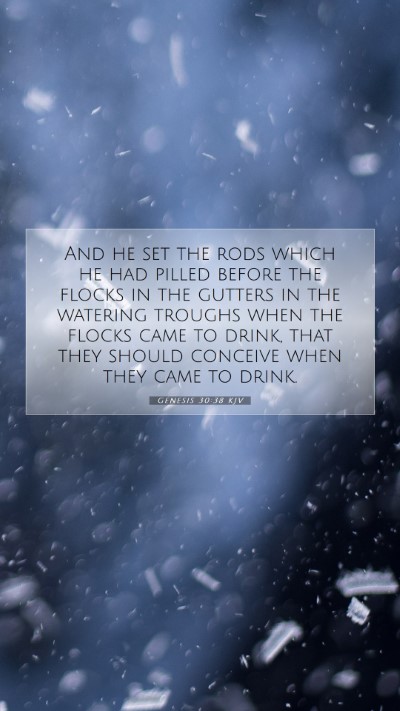Bible Verse Interpretation: Genesis 30:38
Verse: Genesis 30:38 - "And he set the rods which he had pilled before the flocks in the gutters in the watering troughs when the flocks came to drink; that they should conceive when they came to drink."
Overview of the Verse
Genesis 30:38 includes an instance in the story of Jacob and Laban, revealing Jacob’s cleverness and reliance on certain practices to influence the breeding of cattle. This verse highlights the importance of the visible symbols and actions Jacob employed in his farming endeavors, a manner that can be interpreted both literally and metaphorically.
Contextual Background
In the narrative of Genesis, Jacob, having left his family's home, worked for his uncle Laban. Over the years, he sought to build his own wealth. This verse demonstrates his innovative techniques and symbolizes broader themes of dependence on God versus human ingenuity.
Commentary Insights
Matthew Henry Commentary
Matthew Henry points out that Jacob’s methodology reflects both human skill and the belief in divine providence. He argues that while Jacob took practical steps to secure his future, ultimately, it was God who determined the outcome. Jacob believed in the significance of the visual stimuli and their influence on animal breeding as a practice derived from local customs.
Albert Barnes Commentary
According to Albert Barnes, the act of setting the rods before the flocks highlights Jacob’s strategic thinking. He did not rely solely on chance but employed a method he believed would influence the results. Barnes suggests that this action symbolizes the struggle between what humans can achieve through wit and what is divinely ordained.
Adam Clarke Commentary
Adam Clarke expands upon the symbolism present in the actions described in the verse. He notes that the watering troughs were areas of significant importance where the sheep congregated, making the visual impact of the rods crucial for breeding. Clarke interprets this action as Jacob's attempt to both follow the customs and tap into God's favor to bring about a prosperous outcome.
Key Themes and Lessons
- God’s Providence: This verse reminds readers that, despite our efforts, it is ultimately God who controls outcomes.
- The Role of Human Ingenuity: Jacob’s actions illustrate the importance of planning and strategizing, emphasizing the need for diligence in one’s pursuits.
- Symbolism in Nature: The use of rods as a symbol for promoting fertility speaks to the connection between nature and supernatural influence.
Practical Applications
Believers can draw lessons from Jacob's approach by understanding the balance between faith and practical action. When facing challenges, this verse encourages the faithful to work diligently while also trusting in God's ultimate control over their lives.
Related Scripture Cross References
- Genesis 30:31-36: The context of Jacob's negotiation with Laban concerning the wages and fortifying his future.
- Genesis 31:9: God intervening in the situation, attributing the wealth to His divine intervention.
- Proverbs 21:31: "The horse is prepared for the day of battle, but victory belongs to the LORD." Reflects reliance on God despite human efforts.
Conclusion
Genesis 30:38 holds deep significance within the wider narrative of Jacob's life, illustrating the interplay of human action and divine providence. The commentary insights from Henry, Barnes, and Clarke offer a rich template for Bible study groups looking to understand both the practical and spiritual lessons in Scripture. This exploration into the meaning of Bible verses provides valuable Bible study insights, enhancing understanding for both personal study and group discussions.


